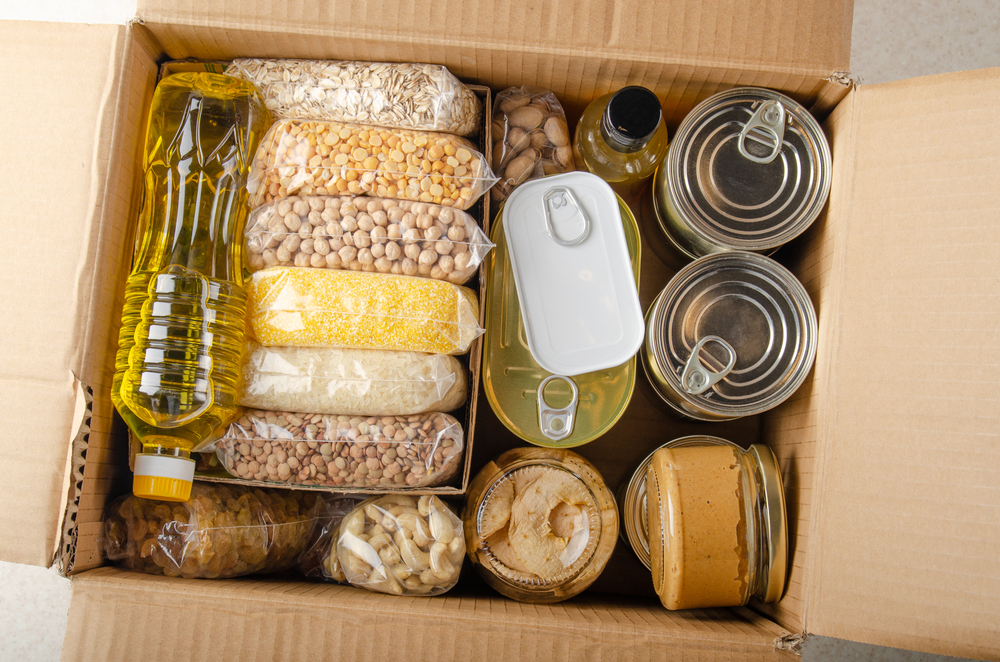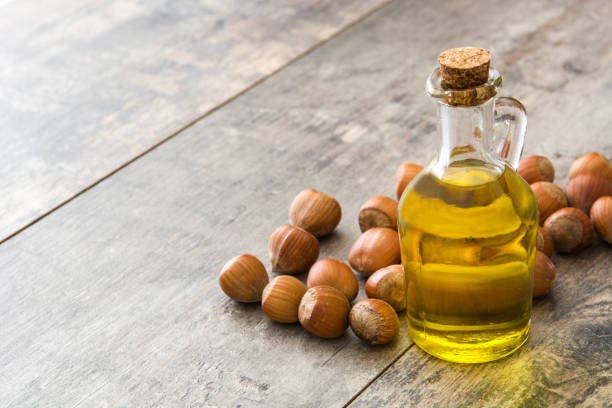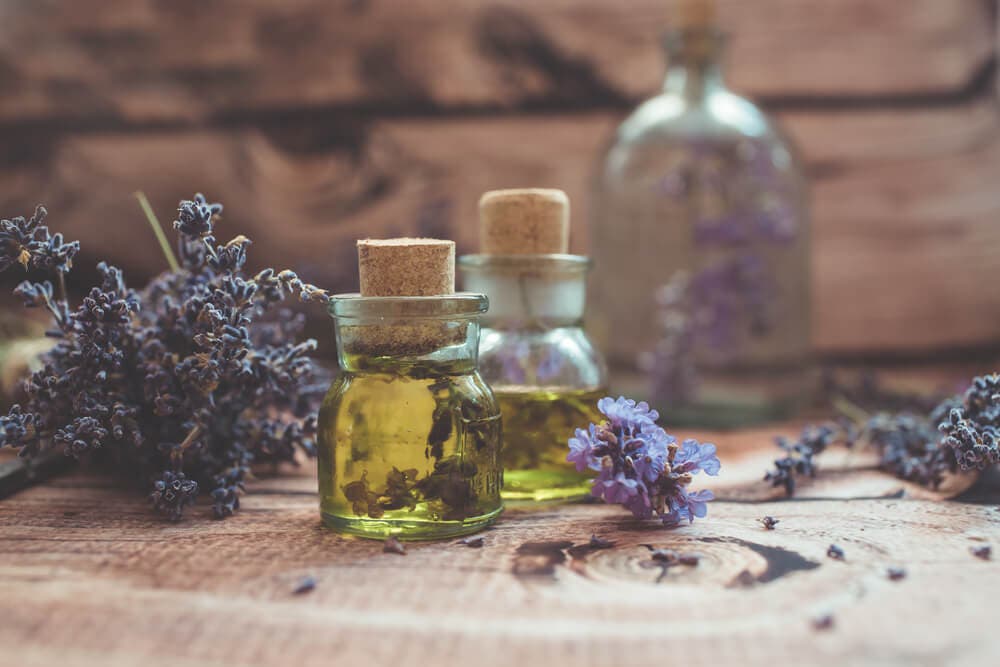It is hard to imagine that in the 21st century it is possible to find ourselves with limited access to food and water. But events in recent months have shown that even in the civilized world there is a threat of forced starvation of adults and children.
It is very difficult to prepare for the conditions of life during war as much as is required for a hundred percent food supply, for its duration is unknown to anyone.
Following a few important rules will greatly increase the chances of survival even with minimal food and water supplies.
Which is more important: water or food?
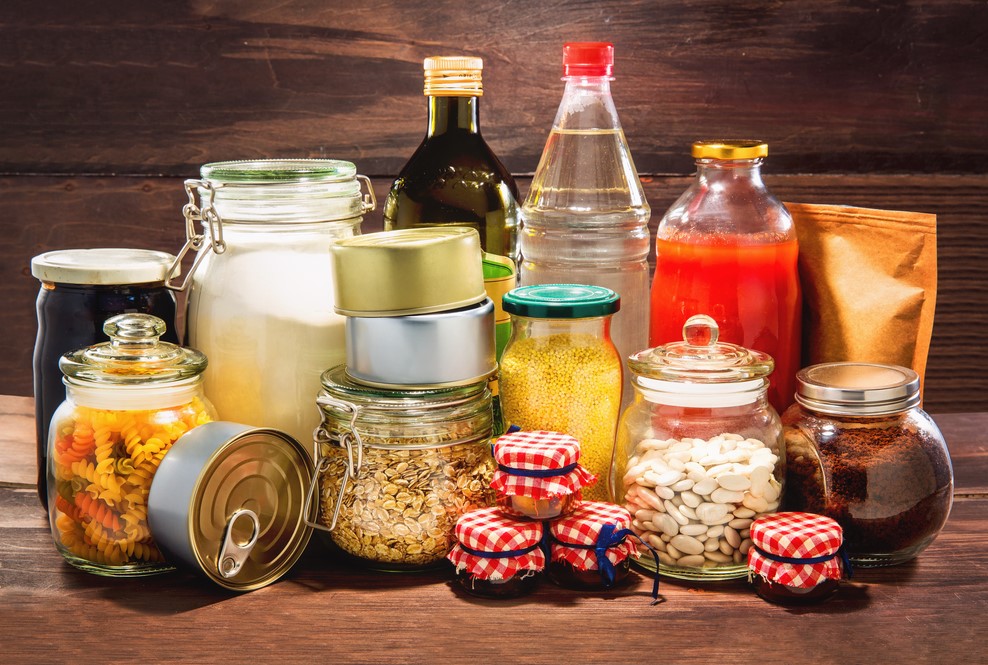
Most people always have food supplies in their kitchen drawers: packets of pasta, buckwheat, rice, stored vegetables, sugar, salt, cookies. And that’s just some of the things that can be stored for a long time. Particularly hoarders are able to last several weeks with limited access to food.
But despite the fact that having food is so relevant, stocking up on drinking water is several times more important. This is explained by the fact that without it, many vital processes are disrupted, and as a result, a person can simply die (with a loss of more than 20% of fluid).
The first symptoms of dehydration in the body can be felt after 4-5 hours: thirst, dry skin and mucous membranes, dizziness. Due to the lack of intake of water in the body for several days:
- Electrolyte and acid-base balance is disturbed;
- Body temperature decreases;
- Clotting of the blood and serious oxidation of the blood occurs;
- Many toxic substances accumulate in the body;
- Arrhythmia, respiratory dysfunction, and nervous activity appear;
- Protein starvation occurs.
An acute need for water occurs on the 2nd or 4th day. A healthy adult is able to survive without it for 5-9 days. Sick, children, elderly people will feel serious consequences of fluid shortage already on 4-6 days.
Cases have been described in which dry fasting lasted more than ten days, and doctors were able to save such patients. For example, in 1947 in the city of Frunze, medics brought back to life a 53-year-old man who had not drank or eaten for 20 days. And in 1985, a nine-year-old boy in Mexico was left under the debris after an earthquake. He had to wait 13 days for help.
All this time the child was starving and had no access to water. Rescuers found him unconscious, and a day later the boy started talking and walking. But these cases are exceptions rather than regularities.
Lack of food, but with the opportunity to drink, increases the chances of survival. It is possible to starve yourself for two weeks without much effect on your body. According to Kathy Cowbrau of the British Nutrition Association, the maximum is about two months.
Consequences of starvation depending on duration
The human condition and the outcome of starvation depend on its duration. The first three days there is no special threat to health, because the body uses its own energy reserves: glycogen, fatty tissue. Only a slight weakness and pale skin can be felt. There is an odor in the mouth, because the body stores saliva for food.
On days 3-7, the feeling of hunger weakens: the body perceives starvation as a pattern. It begins to use all possible sources of energy, beginning with fat tissue and ending with muscle tissue. At this stage there is a depletion of glucose reserves, in large quantities ketones are produced, which are dangerous for the body. Rapid weight loss is observed.
The main danger of the first week of fasting is a considerable drop in blood pressure, as a result of which a person may lose consciousness and get a serious injury in a fall. If water stops flowing into the body, even fatal outcome is possible.
In the second week without food, the body is quite seriously depleted, so it begins to use up tissues of vital organs such as the liver and heart. If a person is of large build with a lot of fatty tissue, it will become a source of energy. For a thin or sick person, the situation is much more complicated.
During the third or fourth week of fasting, the state of health rapidly deteriorates: muscle atrophy, weakness, problems with the musculoskeletal system are observed. Practically all chronic diseases, which a person suffers from, become aggravated. Vitamin B1 deficiency appears and body temperature drops.
Lack of food for more than a month causes severe thiamine deficiency. Vision is considerably impaired, objects in the eyes may be split, and unconsciousness is frequent.
Starving for more than six weeks puts a person in serious danger. At this stage there are problems with brain function, which can lead to blindness and loss of hearing, as well as a lack of response to others. Prolonged lack of food completely depletes the body – death can occur due to cardiac dysfunction or accumulated toxins.
Starvation is one of the worst, for it is prolonged and excruciating. It is worth using every possible means to survive even in the most difficult conditions.
What food is relevant to stockpile
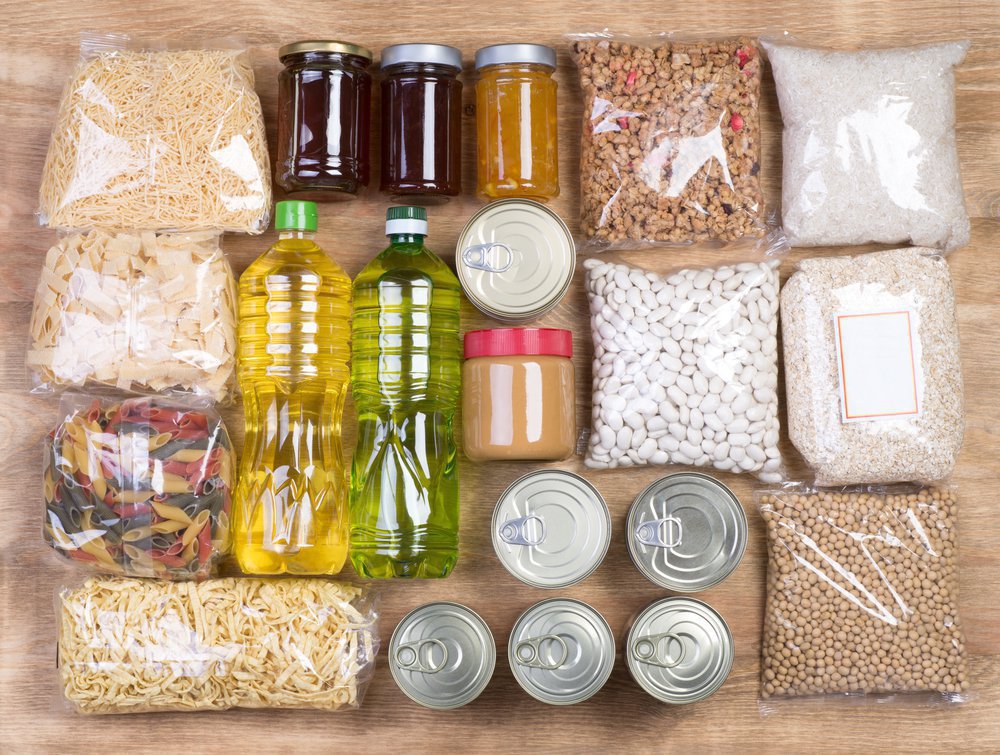
It is difficult to predict whether hostilities or some serious disaster will break out in a particular locality. But it is worthwhile to stockpile, if possible. It is desirable to move them to a shelter at once, because it is quite realistic to have to live there more than one day.
The best options for long-term food reserves are foods that don’t spoil and don’t require cooking:
- Cookies;
- Breadcrumbs;
- Jelly beans, cereal bars;
- Dried fruits, sunflower seeds, pumpkins;
- Nuts;
- Chocolate;
- Dried fish, dried meat;
- Breads;
- Fruits and vegetables that can be kept for at least a few days: apples, carrots, citrus fruits;
- Canned foods that do not require refrigerator storage: fish, meat, vegetables, and fruit;
- Home canning;
- Salt, sugar, flour, if you can cook on a primus or fire;
- Mints, which help freshen the mouth and save water.
It is advisable to stock up on instant cereals. They can be cooked and consumed without cooking: buckwheat, oatmeal, corn grits. Manna will also do, because it is edible even in raw form. But the most important thing is drinking water, because it is hard to survive for a long time without it, even with foodstuffs.
What to do if you don’t have any supplies
It is not always possible to stock up on the foods listed above, so you have to make do with what you have. If there is not enough provision, healthy adults can go on a complete fast. And it will be even more useful for the body than taking small portions with insufficient calories. Our body is used to a certain amount of food, so such fractional meals will lead to faster depletion. Energy will be taken from fat and muscle tissue, and the result is dystrophy.
While in the shelter, a person wastes few calories, so it is important to overcome the feeling of hunger for the first three days. From there on, it decreases. But it is important to remember that those who work physically: carrying water, chopping wood, arranging the room – should have a reserve of strength. They should not refuse to eat completely, as well as children, pregnant and lactating women, the sick and the elderly.
If possible, the diet should not be less than 500-1000 kilocalories. It is necessary to drink water both for those who are hungry and those who eat.
By starvation one can save as much food as possible, for one does not know how long one will have to hide in a shelter. But as soon as one begins to feel a serious loss of strength, one must come out of it slowly. In such a case, it is recommended to eat no more than 30 kilocalories at a time a day, gradually increasing the portions and caloric content of food.
It is desirable to combine food with salt and vitamins to replenish the electrolyte balance and get rid of the deficiency of useful substances.
If there is no food at all, you have to eat whatever you can to survive. As much as it may sound like it, the meat of animals and birds will help not to die of hunger. And in spring and summer some of the plants can be added to food: nettles, dandelions, sorrel, brew tea from branches of cherries, currants, raspberries.
Where to Get Water
The situation is much more difficult if there is no drinking water. Even its largest reserves may eventually run out, so you have to think about alternative means of extraction.
A few options for where to get water from:
- From pipes in the basement or rooms in an apartment building;
- In the cistern of the toilet bowl – there it is clean enough to drink;
- From the boiler;
- Melted snow (relevant in winter), rain water. Such water must be salted, otherwise you cannot get drunk.
Natural springs, wells may be contaminated with potentially hazardous elements, so it is advisable not to use water from them for drinking. As a last resort, before drinking it should be disinfected and filtered as much as possible. If the liquid after intensive shaking foams or has an unusual smell and color, it is better not to drink it.
Methods of filtering and disinfecting water
It’s hard to say what’s worse – not drinking water at all or putting yourself at risk of poisoning. Neither option should be the only alternative, so it is important to use all possible ways to turn technical water into drinking water.
The easiest is to boil it for at least 10 minutes. After cooling, drain the water into a container so that the sediment remains at the bottom. But given that you don’t always have access to gas, light, or fire, you can use other methods:
- Tablets with active chlorine: just wait 30-60 minutes until they are completely dissolved, and you can be sure that 99% of the pathogenic flora in the water is gone. But it is important to strictly follow the dosage.
- Aqueous-alcoholic iodine solution: can be used only in extreme cases to protect yourself from dehydration. This cleansing option is not suitable for people with thyroid problems. 3-4 drops of iodine per liter is enough to decontaminate the liquid, but you must wait 30-60 minutes before drinking it. The water will have a characteristic smell and taste, but it will save your life.
- Manganese may also be used for this purpose. One to two grams per liter of water is sufficient. The solution should be only slightly colored, not bright pink. Otherwise there may be problems with the gastrointestinal tract.
- Activated charcoal can be a natural filter to remove unpleasant odor and some impurities. You will need five tablets per liter of water. It is better to crush them and, wrapped in gauze or cloth, drop them in a container with liquid. It will take at least 8 hours to clean in this way.
To get the safest water for drinking, you can disinfect and filter it at the same time. And be sure to drink at least the minimum required amount to be able to support the functioning of the body.
Such methods of survival are relevant not only during military operations. They may also come in handy in the event of any other catastrophe that changes our usual life:
- heavy snowfalls that can paralyze a populated area for several days;
- epidemics: of late, the coronavirus, which has demonstrated that having supplies is more than relevant;
- man-made disasters – a nuclear explosion at a nuclear power plant, a fire at a chemical production facility;
- natural disasters – floods, storms, hurricanes, tornadoes.
Sources
- U.S. Centers for Disease Control and Prevention. Creating and Storing an Emergency Water Supply.
- U.S. Centers for Disease Control and Prevention. Creating and Storing an Emergency Water Supply.
- Ready.gov. Water.
- National Council on Aging. The Truth About Hydration: 7 Myths and Facts.
- Leib DE, Zimmerman CA, Knight ZA. Thirst. Curr Biol. 2016;26(24):R1260-R1265. doi: 10.1016/j.cub.2016.11.019
- Valtin, H. “‘Drink at Least Eight Glasses of Water a Day.’ Really? Is There Scientific Evidence for ‘8 x 8’?.” American Journal of Physiology. Regulatory, Integrative, and Comparative Physiology. Nov 2002.
Read also:
- How do I check my gastrointestinal function?Stomach pain, constipation or diarrhea, bloating, belching, heartburn? These are all symptoms of problems in the gastrointestinal tract. It starts with the mouth and esophagus and ends with the intestines and rectum.
- What are the benefits of hazelnut oil for the skin?Hazelnut oil is rich in vitamins and essential fatty acids that nourish the skin. Here are a few reasons why you should add this oil to your skin care routine.
- Immune-boosting aromatic oilsThere are many products and treatments that can help your body to build a natural resistance to the harsh winter months, and aromatherapy is one of them. There are many studies supporting the healing power of aromatherapy and it is good for both mental and physical health. Aromatic essential oils also have many health benefits… Read more: Immune-boosting aromatic oils
- Marula Oil Benefits, Uses, and PrecautionsMarula Oil is an exotic oil that comes from the African Marula tree. It’s a good ingredient for skin, hair, and nails. Learn more about the benefits and precautions of Marula Oil with our guide.
- Goal setting for students, children and young peopleRemember when you learned how to set goals? If you have trouble answering this question, you are not alone! Most of us don’t spend much time thinking about how we set our goals. In fact, many of us don’t even think of goal setting as a skill; rather, it’s something we do without much thought.… Read more: Goal setting for students, children and young people
The articles on this site are for information purposes only. The site administrators are not responsible for attempting to apply any recipe, advice or diet, nor do they guarantee that the information provided will help or harm you personally. Be cautious and always consult a doctor or nutritionist!
*All products recommended are selected by our editorial team. Some of our articles include affiliate links. If you buy something through one of these links, you help us earn a small commission from the seller and thus support the writing of useful and quality articles.


